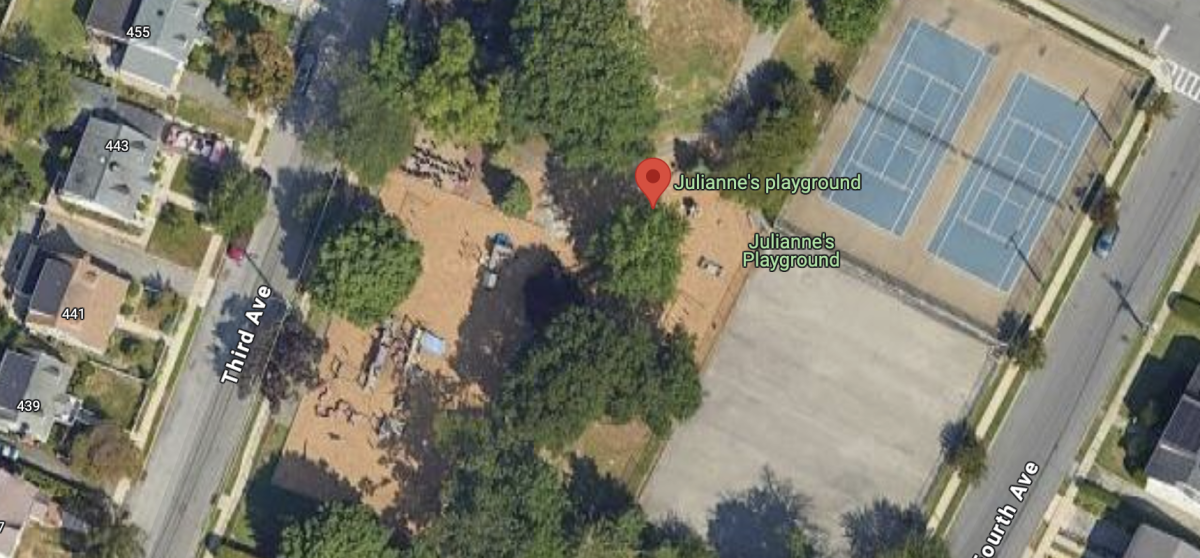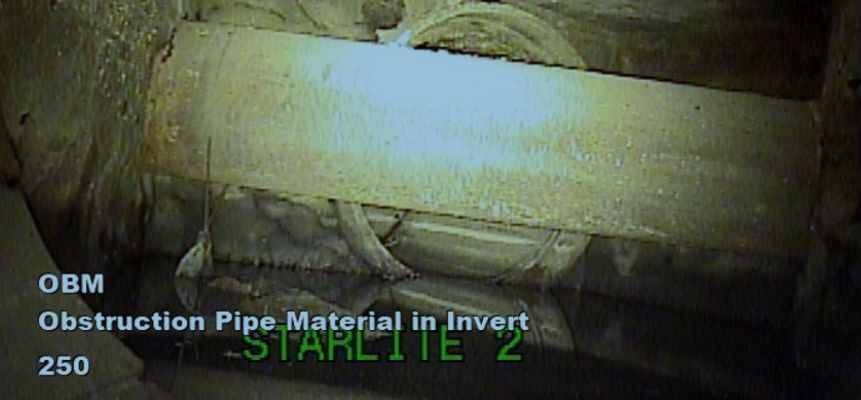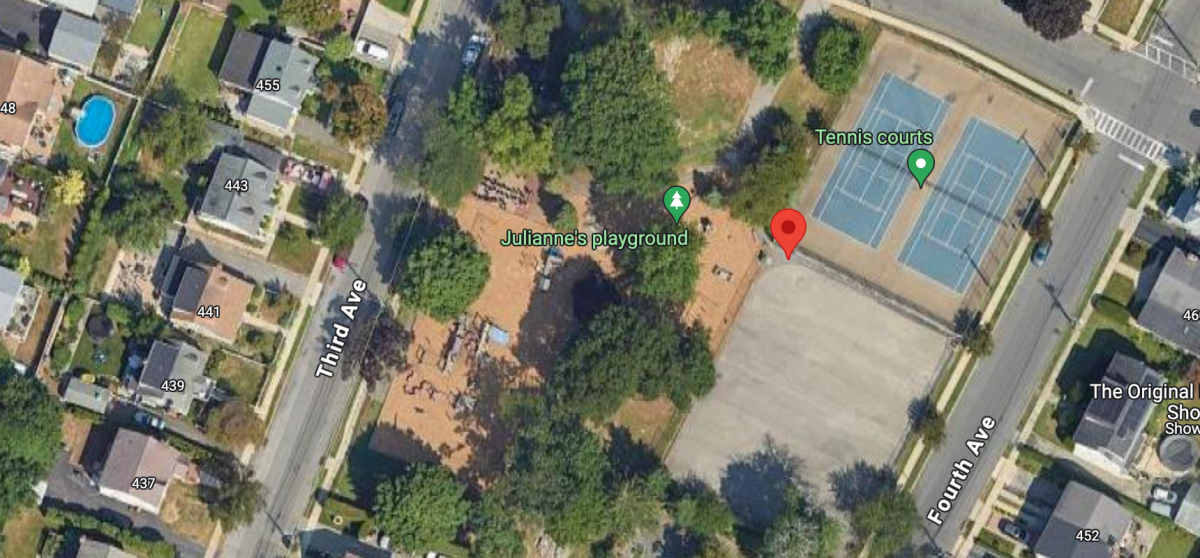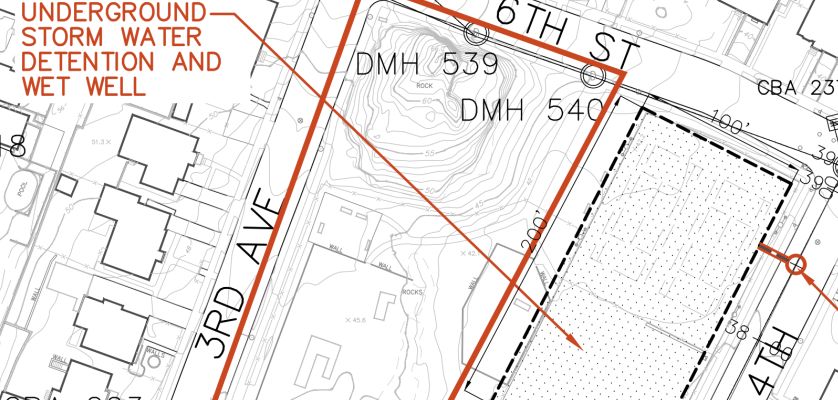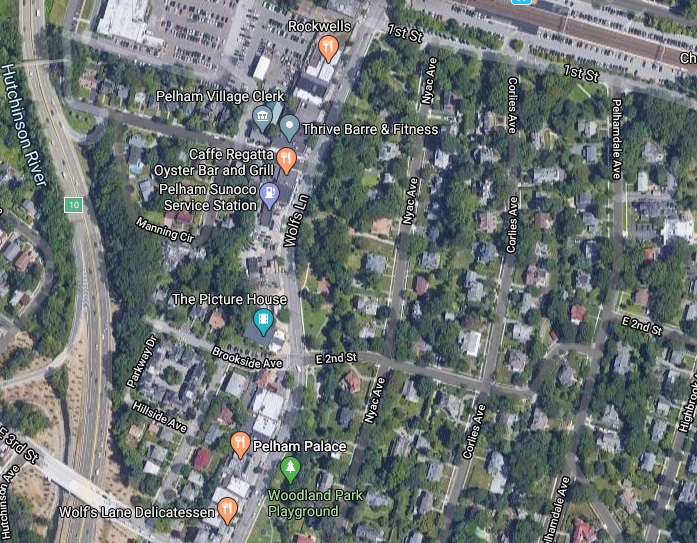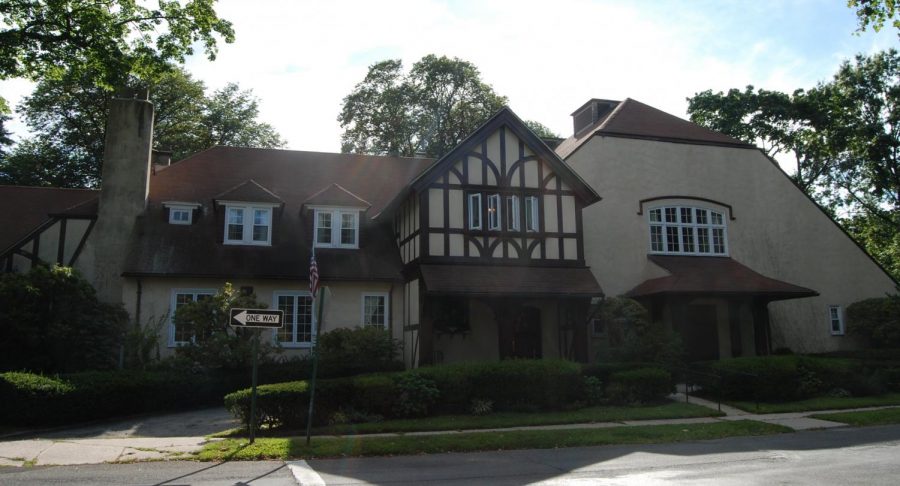This letter to Village of Pelham residents from Mayor Chance Mullen was published Tuesday on the village’s website.
Dear neighbors,
I write to share an update on the village’s flood mitigation efforts.
As you know, the village has requested an easement from the Pelham school district to install a stormwater detention system below the blacktop and tennis courts on Fourth Avenue and place a pump station somewhere on the property (outside the playground area). We’ve offered $600,000 that can be paid directly to the district or be used to upgrade Julianne’s Playground, above and beyond the cost of restoring the property to its current condition. Unfortunately, the village’s offer has been rejected. We also expressed openness to a transfer or sale of the property if the school district could agree to at least a “failsafe” easement, only triggered in the event the district’s voters do not approve the property transfer. This idea was also rejected. The school district has not yet provided a specific counteroffer they would find acceptable. They have only sought to set pre-conditions for what we’re allowed to discuss. Their attorney has further stipulated that unless we withdraw our request for an easement and acknowledge that a voluntary easement will never be granted under any circumstance, there will be no discussion of potential options and no cooperation for the next phase of the project (geotechnical study and surveys).
There are many reasons that we believe an easement agreement (either upfront or as a “failsafe”) is essential to protecting your interests. Since this has become a significant point of disagreement, I’d like to share a few of those reasons directly with you.
First, we believe an easement agreement simply makes the most sense for this project. It’s important to understand that the village is not seeking to own Julianne’s Playground or change its use. We don’t run recreation programs (those are run by the town). We are not attempting to build offices or develop the site. We believe Julianne’s Playground should continue to be used as it has for the last century, and we are committed to protecting it. In fact, we are currently exploring designs that may avoid a reduction of the play area entirely. Our only goal is to install flood mitigation equipment on the site in a way that minimizes potential impact on the play area and maintains its current use.
Their attorney has further stipulated that unless we withdraw our request for an easement… there will be no discussion of potential options and no cooperation for the next phase of the project.
Easements for utilities and other types of core infrastructure that do not change the fundamental use of a property are common for storm drains, sanitary sewer mains, natural gas lines, electrical power lines and telephone lines. When ConEd installs a new gas line, we don’t try to sell them the road or ask the public to approve the work. No aspect of this project requires a transfer of ownership, and we have not yet heard any compelling rationale for why it’s important to approach this endeavor differently than we would approach any other infrastructure project.
Second, an easement agreement (or other “failsafe” arrangement) is the most expeditious way to allow us to move forward with grant applications. A transfer or sale of the property will require a ballot proposition, a town-wide vote and likely a lengthy public education campaign. Unless an easement was granted in advance, we would not know if it’s possible to move forward with the project until the conclusion of that vote—and that’s assuming the proposition is approved by voters on the first attempt. We engaged our grant-writing firm last June explicitly so that we could get started on the grants process as soon as possible, recognizing that a single grants cycle can take 12 to 18 months to complete and potentially longer depending on submission deadlines. For a project of this size, we believe it is imperative that we do everything we can to avoid unnecessary delays. If the district agreed to a “failsafe” easement agreement, that concern would be entirely resolved, since grant application reviewers would know the project was not contingent on circumstances beyond our control.
And finally, the ballot proposition required to approve a property transfer is itself a risk that must be managed, given the nature of this particular project. I believe our desire to mitigate flooding is popular across town, but let’s face it: successful ballot propositions don’t just happen. They require enormous effort and public education, and they are subject to failure without explicit, sustained support from our town’s community leaders (including the school board itself). Even good ideas are subject to rejection depending on the details of a proposal, and they can sometimes require multiple attempts before a majority of the public believes the project is worthwhile. While the school board may view this issue as little more than a real estate transaction, the village views this as an urgent public health and safety matter—the kind of project that should never be subjected to popular vote. It would be deeply unethical to not separate the two.
While the school board may view this issue as little more than a real estate transaction, the village views this as an urgent public health and safety matter…
Of particular concern to the village board is the position our residents would be in if the vote failed. It’s not as though this issue is going away. The village is committed to flood mitigation, which requires the installation of a detention system and pump station. But the village does not own any land in the area where the detention system will need to be located. Our remaining options would be to either proceed with eminent domain for the easement on school district property after already delaying the project for some period of time; or we would have to make the unimaginable decision to use the village’s authority to secure property from our own neighbors, whose homes would be demolished to make way for another stretch of undeveloped blacktop right across the street from an existing stretch of undeveloped blacktop. We serve the 7,326 residents of the Village of Pelham, and we do so without apology. We cannot in good conscience agree to expose you to such risk as a pre-condition to even talking.
While I still hold out some hope that the school district will join us in collaboration, I have to admit, my optimism is waning. We have reached a point in these discussions when the village board must begin considering alternative paths more earnestly, including the potential assertion of our rights under eminent domain. I have asked our professional staff, engineers and attorneys to provide analysis on how we might proceed. We’ll include information about our potential options in a public work session (date TBD) so that we can all better understand the process going forward.
I’m sure many of you are concerned about what this may mean for the project, especially those whose properties are vulnerable to frequent flooding. The path ahead will certainly be more challenging, but you should know that the village board’s commitment to flood mitigation is as strong as it’s ever been. Now is the time to get this done, and that’s exactly what we’re going to do.
I’ll share more information when it’s available.
Best,
Chance



